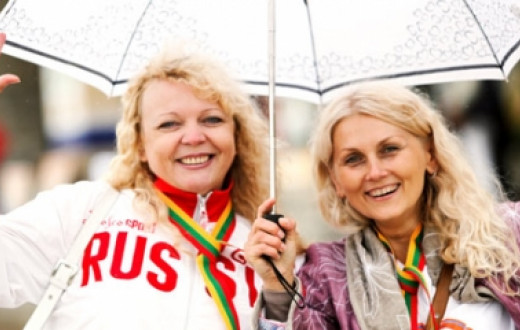
Schools play an important role in nurturing children to grow up into responsible adults and good human beings. The teacher has a great responsibility towards the development of students.
Meditation can help teachers to be calm and confident in dealing with the students. Meditation is also good for children to get over their stress and enhance their learning experience.
Teacher – role model
Only half children's values are learned from their parents; the rest comes from their teachers and school environment. They observe everything that a teacher does and they pick up on it. When a teacher is calm and composed, they observe that; if a teacher is tense or not smiling, then they watch and imitate that.
Teacher stress
Parents may have to deal with only one or two children, but teachers have many more in the classroom. The situation is more testing and stressful. They have to manage students with varying behaviour and different learning levels. To handle this, teachers need to center themselves a few times every day. A lot of patience is necessary.
Meditation helpful for teachers
The teachers need to know that the task they have is appropriate for them, and that they will handle it in the best manner they can. Just before lunch, they can sit and calm themselves, and have a deep trust that everything is being taken care of, or will be taken care of.
It would be good to sit and relax and just be with nature for a short time every day. They should start meditating regularly to increase energy. A few deep breaths here and there will also help.
Holistic education
Educating children should be holistic, not just a process of stuffing their head with information. Just coming to the class and learning a few lessons is not really bringing up a child. We have to see the needs for complete development because body and mind are linked. The body and mind are so linked that what we put in the body reflects in the mind and what is in the mind reflects in the body. Human values need to be cultured for the sake of the mind and the body.
Children should be encouraged to be friendly with all the other children in the classroom. It is better for the children to sit in different places each day and with different kids – although this makes it a little difficult for the teacher to keep track of what they are doing. This develops a sense of belonging in the classroom with all the kids and places.
Student stress
For school going kids, nowadays it is a stressful experience with worries about peer pressure, studies, future decisions, and competition. Regular practice of meditation is the need of the hour - to reverse these negative experiences and prepare for a bright future.
Meditation can make children calmer, more peaceful, happier and relaxed - every time they practice it. This increases their attention in the classroom and of course the retention of the knowledge they gain.
Benefits of meditation for school going children:
- Improves their creativity
- Improves their concentration
- Reduces stress levels
- Enables better interaction with peers
Art of Living offers the Art Excel* and YES!* program which many schools have integrated in their annual curriculum. These programs teach many types of meditation to the children that they practice in the school every day.
Art Excel and YES! Program
The yoga at Art of Living is taught to kids from age group 8-13 years as part of the program called Art Excel. It is specially devised by Gurudev Sri Sri Ravi Shankar teachs profound things in playful manner.
Here you learn simple but effective yoga, and breathing processes that help to eliminate fear, anxiety, and depression. Art Excel provides practical tools that enable you to effectively handle the stress, and negative emotions.
YES! - Youth Empowerment Seminar is a program designed to deal with challenges during adolescent age. It is full of fun and activities as well as profound knowledge, and its targets at the age group of 14-18 years.


